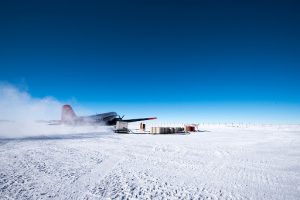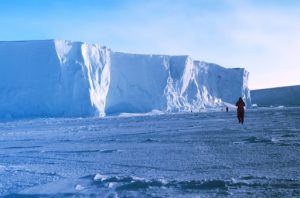
On March 18, 2022, the Concordia research base at Dome C of Antarctica, one of the coldest places in the world, reported that temperatures had reached a shocking 11.3 degrees Fahrenheit, or -11.5 degrees Celsius. The research station is 9,800 feet above sea level, operated by French and Italian researchers.
March marks the end of summer in Antarctica. Normally, at this time of year, inland temperatures fall to an average of -56 degrees Fahrenheit (-49 degrees Celsius), making the temperature recorded on March 18 almost 70 degrees higher than usual. Scientists believe it has set a world record for the highest temperature above normal in any continent.
Researchers are scrambling to make sense of the occasion. Such an extreme meteorological event has never been observed in Dome C. It currently can’t be proven that climate change contributed to the drastic temperature change, but scientists have said that human-caused climate change almost definitely played a part, according to The Washington Post.
Other scientists are analyzing recent meteorological events for an explanation. An atmospheric river, a narrow passage in the atmosphere that transfers water vapor, had recently passed by and brought large amounts of ocean moisture onto the land. Just the day before on March 17, the ice sheet was almost the wettest it had been since 1980. There was also an arrival of hot air, which is very rare in the Antarctic at this time of year. The moisture from the atmospheric river could’ve trapped the hot air on the land and caused the heat wave.
This isn’t the only strange event that has happened in Antarctica in recent months. In late February, Antarctica’s sea ice level fell below 2 million square kilometers for the first time since 1979. On March 15, an ice shelf nearly the size of New York City completely collapsed, becoming the first Antarctic ice shelf in human history to collapse. This was most likely due to the incoming heat wave, as temperatures had already begun to reach record high levels at the time.
This event, while extreme, won’t have a very significant impact on Antarctica nor the rest of the world. However, it is important to keep an eye out for similar occurrences and what this could mean for the future.

Sources:
www.cbsnews.com/news/antarctica-record-shattering-warmth-historic-event/
www.cnn.com/2022/03/28/weather/antarctica-world-record-high-temperature-anomaly-climate/index.html
www.noaa.gov/stories/what-are-atmospheric-rivers
www.washingtonpost.com/weather/2022/03/18/antarctica-heat-wave-climate-change/
Written By: Vivien Chen
Date: March 31, 2022
